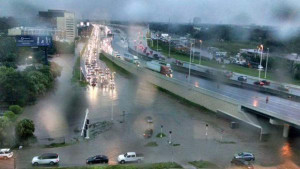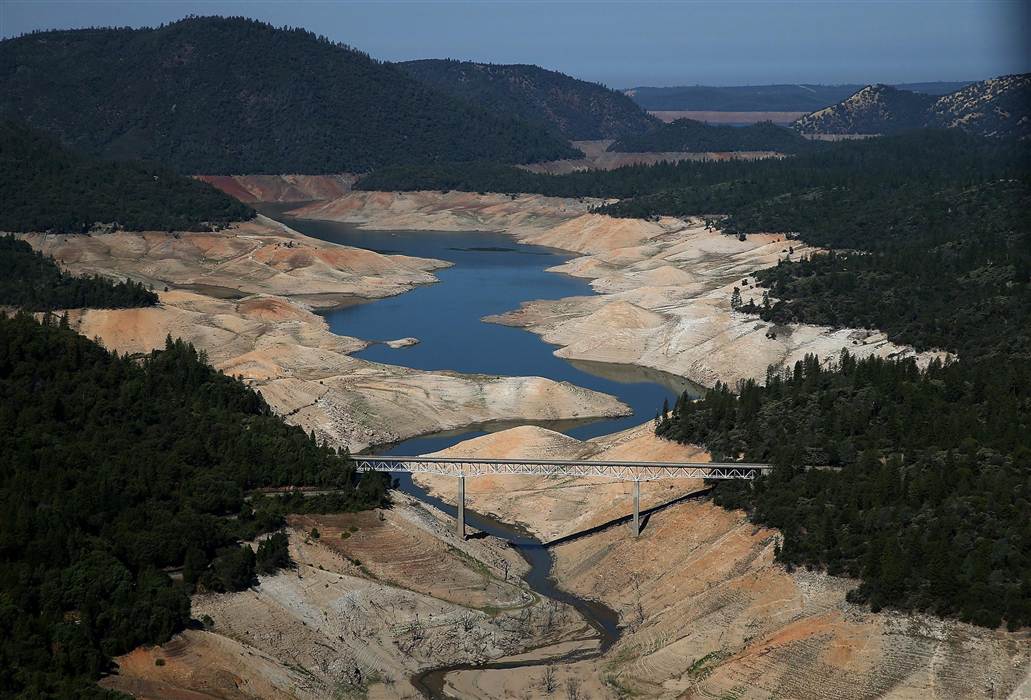Keeping the Business from Floating Away
"Recent events on opposite sides of the weather spectrum illustrate just how much something we take for granted can create serious challenges for your business operations."
What has the weather got to do with your business?
Most of the time, unless your business involves outdoor activities, the answer is very little. However, recent events on opposite sides of the weather spectrum illustrate just how much something we take for granted can create serious challenges for your business operations.
Let's consider two cases - Historically heavy rains in Tampa Bay, and the ongoing California drought.
Tampa Bay and Too Much Rain
Over the first weekend in August 2015, the city of Tampa saw rainfall levels that exceeded 8 inches. Now that's a lot of water, but to put that into context, Tampa historically sees about 7.8 inches of water in the MONTH of August. And more was in the forecast for the following week. Tampa's mayor warned people to stay off the road and stay home, because the city's sewage infrastructure couldn't handle the volume of water, and main thoroughfares were flooded at levels not seen even during tropical storms.

A retail business could expect to see a downturn in foot traffic during this period as fewer people would be out shopping or dining. When you cannot get off the highway, it's a pretty safe bet that you're not going to risk your life for a burger.
It's probably also true that if consumers are having a hard time getting to your business, your workers are also experiencing the same trouble.
While these conditions would cause a temporary downturn in your cash flow, you wouldn't expect that these conditions would have a long-term impact on your business. Unless ...
What would happen to your business if the flooding caused real damage to your business location? or interrupted electrical power? or caused inventory losses? What would happen if your primary production equipment was flooded out, and was damaged beyond repair? What happens if your employees literally cannot get to their work location? Going a little further afield, what would happen if a high-priority project for a particular client involving your finished product was damaged, and there isn't time to produce more?
Business continuity planning (BCP) helps you to have pre-planned responses in place when nature doesn't cooperate. When you have evaluated the nature of the risk, and have developed a reasonable response plan, your business is better prepared for those external events over which you have little control.
California Drought
While the Tampa Bay record rainfall raises an acute (and temporary) set of concerns, the California drought represents a much longer-term challenge.
California is now in its fourth year of severe drought. Governor Jerry Brown issued a first ever mandate in California to reduce water consumption by 25%. The state has established initiatives to replace lawns and promote drought tolerant landscaping. California is working with its agricultural industry to adapt to decreased water availability. The list of adjustments goes on, and crosses every sector of the California economy.
It almost goes without saying that if you were in the lawn-care business in California, your entire business model is at risk as more Californians move to rip out their lawns and replace them with alternative landscaping. As the business owner, do you shift with the change, go out of business, or pray for an El Nino to bring record rainfall to northern California to start restoring the water reservoirs?
But if you're a commercial agriculture-based business, you have acres invested in particular crops, and millions of dollars invested in specialized equipment. Your concerns are different. Do you shift crops? Do you look for drought-resistant cultivars? Do you reduce acreage? Do you invest in drip irrigation? Will consumers accept price increases because of reduced supply? Will reduced revenue cover your overhead?
And what about California businesses that are less directly affected by water shortages. Restaurants need to ensure supplies both for drinking and preparing foods, and for cleaning dishware, utensils and cookware. Does a restaurant shift to higher efficiency commercial dishwashers? Does it shift to tables that don't require linen tablecloths? Does it make customers ask for a glass of water, as opposed to placing water glasses on the table by default?
How does the water shortage affect drywall manufacturing, for example? (Water is used during separate processes to make both the gypsum core and the paper facing.)
Bottom Line
Continuity planning covers a broad range of "business interrupted" issues. How you plan to respond can have a major impact on your businesses ability to survive.



Recent Comments